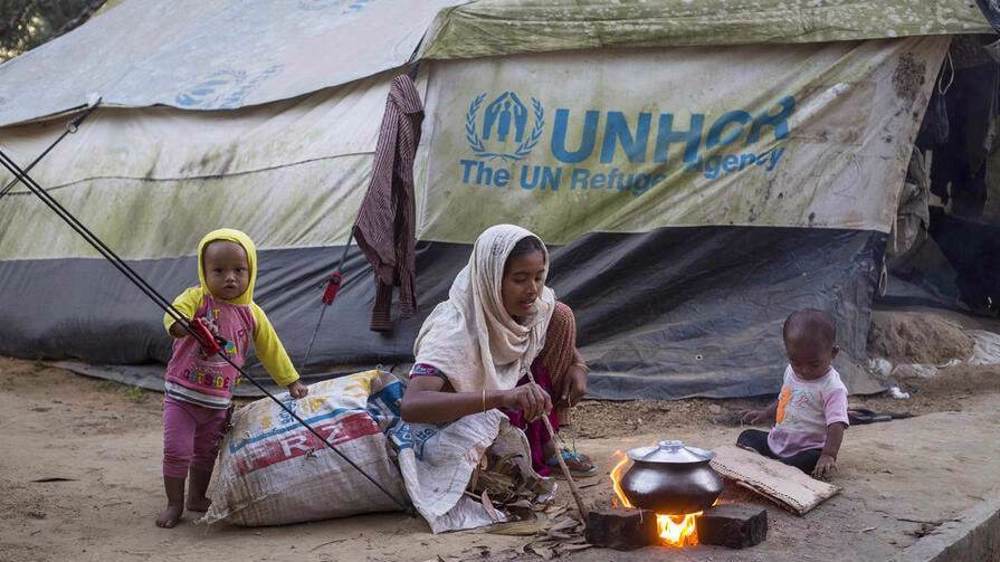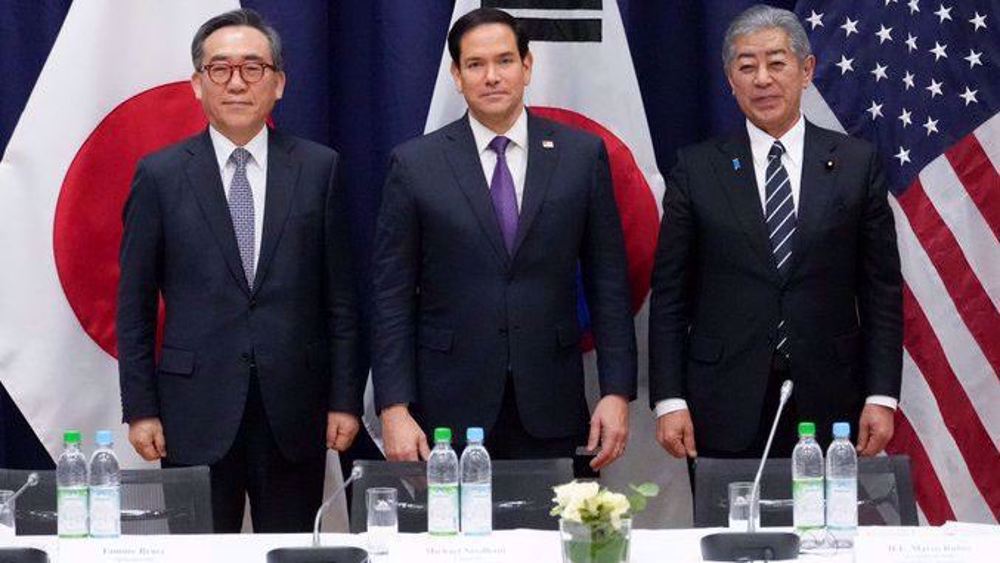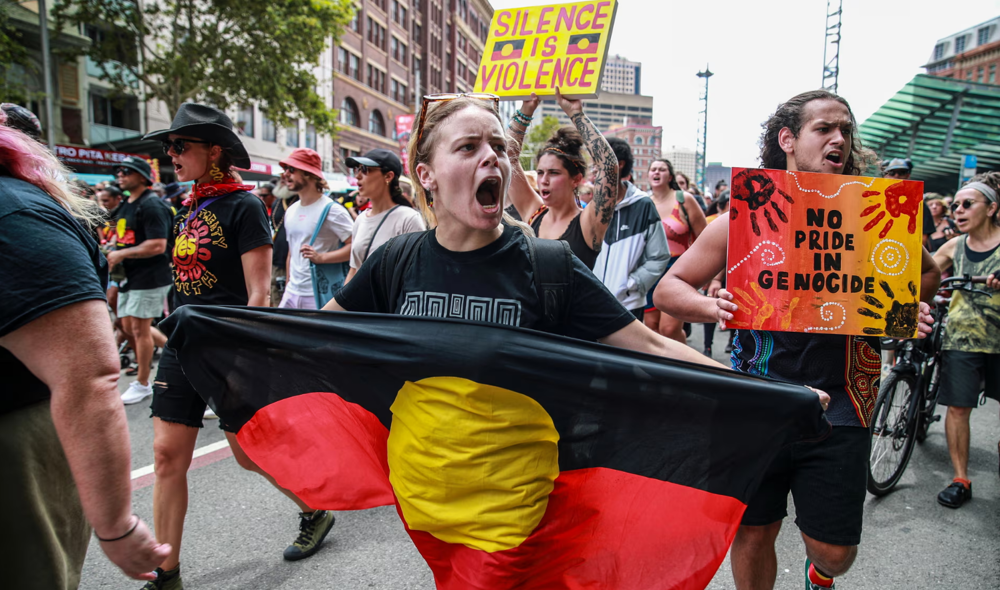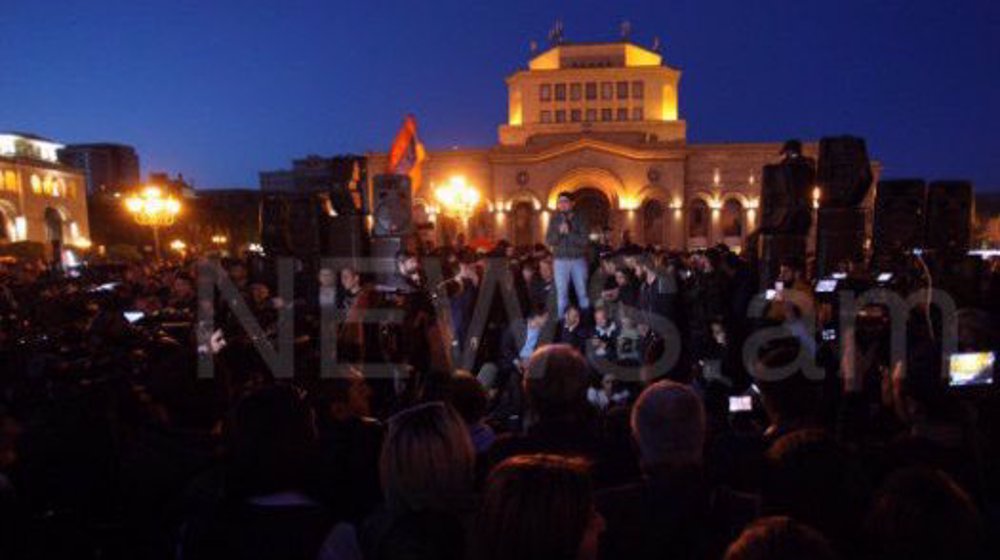Karabakh war is over; Armenia agrees to withdraw forces from occupied lands
Yerevan has signed a Russia-brokered deal to end its conflict with Baku over the Nagorno-Karabakh region, committing itself to withdrawal of all its forces from the occupied territories in a move that has outraged Armenians who consider it as “concession of defeat”.
Shortly after the release of a statement by Armenian Prime Minister Nikol Pashinyan late Monday, in which he announced he has signed the ceasefire deal, a huge number of angry protesters demonstrated in Yerevan and even stormed the Armenian government building.
While Pashinyan, in his statement, insists that the ceasefire deal is not a "concession of defeat", Armenia is widely believed to have conceded the defeat in the Karabakh conflict.
The ceasefire deal signed by the presidents of Azerbaijan and Russia and the prime minister of Armenia states that “a complete ceasefire is announced in the zone of the Nagorno-Karabakh conflict from 00:00 Moscow time on November 10, 2020,” and all the hostilities come to an end as of this time.
“The Aghdam region and the territories held by the Armenian Party in the Gazakh region of the Republic of Azerbaijan shall be returned to the Azerbaijani Party until November 20, 2020,” the ceasefire agreement said.
The Armenian prime minister has agreed that his country returns the Kalbajar region to the Republic of Azerbaijan by November 15, 2020, and the Lachin region by December 1, 2020, while leaving behind the Lachin corridor (5 km wide), which will ensure the connection of Nagorno-Karabakh with Armenia and at the same time will not affect Shusha city, which was recently retaken by Azerbaijani forces.
They also decided to build “new transport communications linking the Nakhichevan Autonomous Republic with the western regions of Azerbaijan.”
The three leaders have agreed that “a peacekeeping contingent of the Russian Federation is deployed along the line of contact in Nagorno-Karabakh and along the Lachin corridor, with a size of 1,960 servicemen with small arms, 90 armored personnel carriers, 380 units of automobile and special equipment.”
“The peacekeeping contingent of the Russian Federation is deployed in parallel with the withdrawal of the Armenian armed forces. The duration of the stay of the peacekeeping contingent of the Russian Federation is 5 years, with automatic extension for the next 5-year periods, if none of the Parties declares 6 months before the expiration of the period of intention to terminate the application of this provision,” the deal reads.
“In order to increase the effectiveness of control over the implementation of the agreements by the parties to the conflict, a peacekeeping center is being deployed to control the ceasefire.”
In the next three years, a plan for the construction of a new traffic route along the Lachin corridor will be determined, providing communication between Stepanakert and Armenia, with the subsequent redeployment of the Russian peacekeeping contingent to protect this route, the ceasefire agreement said.
The Republic of Azerbaijan guarantees the safety of traffic along the Lachin corridor of citizens, vehicles and goods in both directions.
The three leader have also agreed that “internally displaced persons and refugees return to the territory of Nagorno-Karabakh and adjacent areas under the control of the Office of the UN High Commissioner for Refugees.”
They further decided to carry out the exchange of prisoners of war and other detained persons and bodies of the dead.
“All economic and transport links in the region are unblocked. The Republic of Armenia provides transport links between the western regions of the Republic of Azerbaijan and the Nakhichevan Autonomous Republic in order to organize the unimpeded movement of citizens, vehicles and goods in both directions. Control over transport communication is carried out by the bodies of the Border Service of the FSB of Russia,” the deal added.
Turkish troops to join Russian peacekeeping mission
Shortly after the announcement of the ceasefire deal, Azeri President Ilham Aliyev attended a press conference and offered "congratulations" on the end of the Karabakh war.
"Today I am signing this agreement with pride! Congratulations to the people of Azerbaijan!" he said.
He said the parties reached a settlement on the disputed region, which meets the interests of both Azerbaijan and Armenia.
At the same time, he said that the Armenian prime minister has not signed the agreement because he wants to.
"He signs it because we forced him to do so," Aliyev said, while showing his fist.
Thanks to this agreement, we will return our territories without any further bloodshed," he added.
"We avenged Khojaly victims. We avenged our martyrs," he added, boasting about delivering his promises on retaking Karabakh.
"Pashinyan should have thought of this day when he was dancing drunkenly in Shusha. I had said that we will chase them like dogs and now we did it. Everyone saw our iron fist now. And we did that awesomely."
He said he could make Pashinyan come to Baku and sign the treaty sitting in front of him, but he doesn't like to humiliate anyone.
Aliyev also thanked Turkish President Recep Tayyip Erdogan, and in what is expected to further infuriate Armenians, declared that both Turkish and Russian peacekeepers will be deployed in the region.
Local population in Yerevan are shouting “Shame on you” because of the agreement between Russia, Armenia and Azerbaijan for the removal of Armenian forces from Karabakh. pic.twitter.com/JqcKwNa3RN
— CaucasusWarReport (@Caucasuswar) November 9, 2020
While the agreement has outraged the Armenian nation, it is expected to raise regional concerns about the transfer of Turkish-backed terrorists from Syria to Karabakh and now Nakhichevan Autonomous Republic, which is going to be linked to Azerbaijan Republic through a corridor.

Hunger, disease loom for Rohingya refugees in Bangladesh amid Trump's aid cuts: UN

US, Japan, S Korea renew calls for ‘complete denuclearisation’ of North Korea

Indigenous rights activists rally on Australia Day to protest British colonization legacy
Iranian film ‘In the Shadow of Cypress’ wins Oscar for Best Animated Short
Arab countries slam Israel’s decision to block humanitarian aid into Gaza
Sanders dismisses Republicans’ ‘horrific’ calls for Zelensky to resign
VIDEO | Activists project censored Gaza documentary onto BBC Scotland office
Yemen warns Israel, US: We are watching Gaza; enemies ‘lined up in the crosshairs’
VIDEO | Ramadan in Pakistan: A month of devotion, generosity
VIDEO | Muslims in India begin Ramadan with prayers for peace and solidarity with Palestine
VIDEO | Press TV's news headlines








 This makes it easy to access the Press TV website
This makes it easy to access the Press TV website